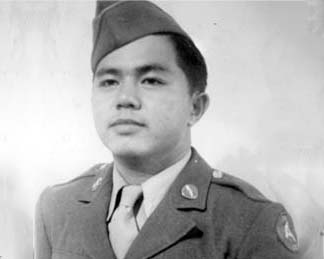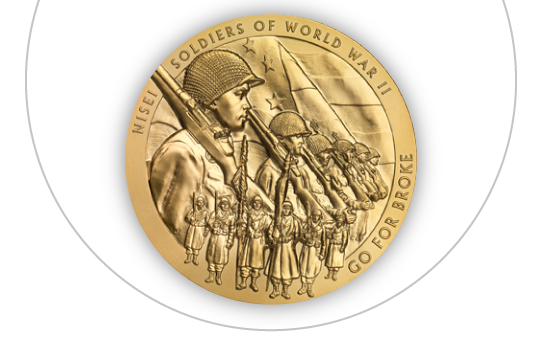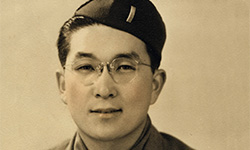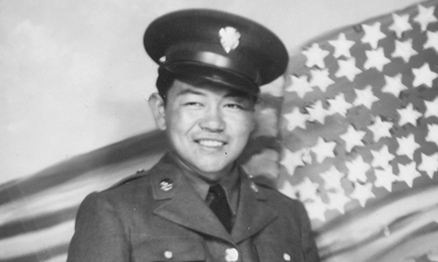Staff Sergeant
Kazuo Masuda
Company F
442nd Regimental Combat Team
1918 - 1944
- Citizenship
- Courage
- Sacrifice
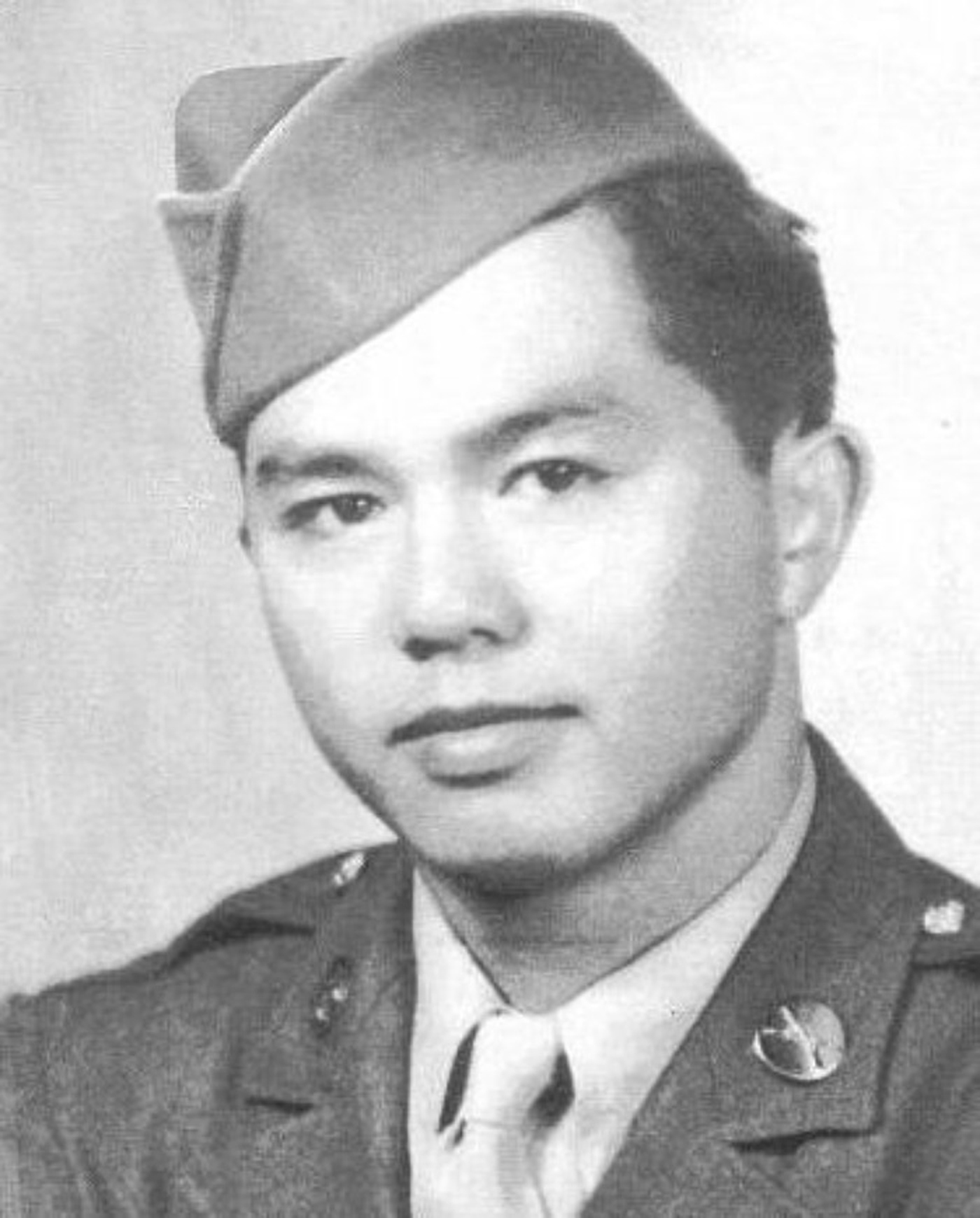
Early Life and Military Service
Kazuo was born in 1918 to Gensuke and Tamae Masuda in Orange County, California. His family owned a farm, where he worked after graduating from high school.
He was inducted into US military service in 1941, when he was 23. Pearl Harbor was bombed less than three months later.
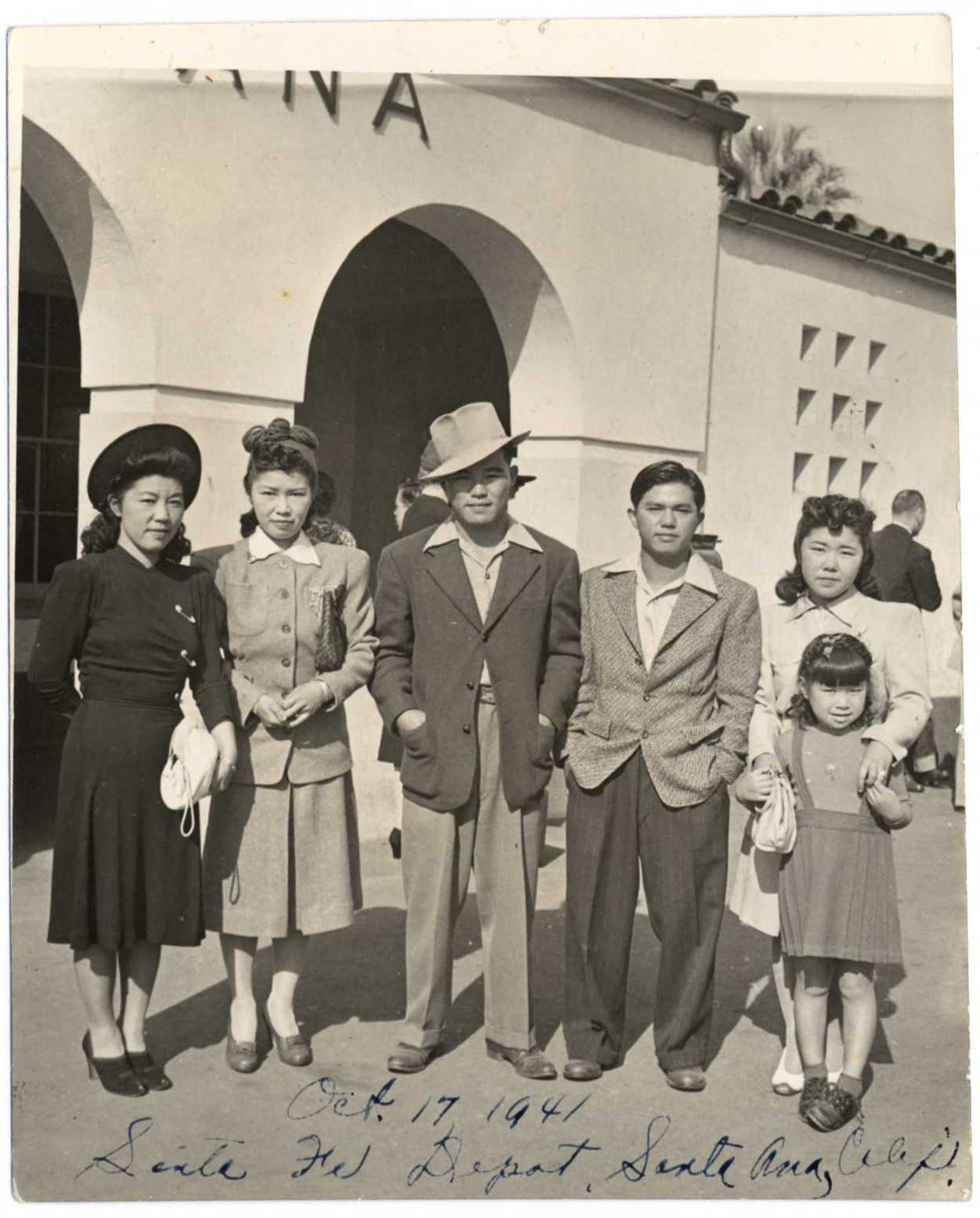
Masuda Family at Santa Fe Depot Awaiting Relocation
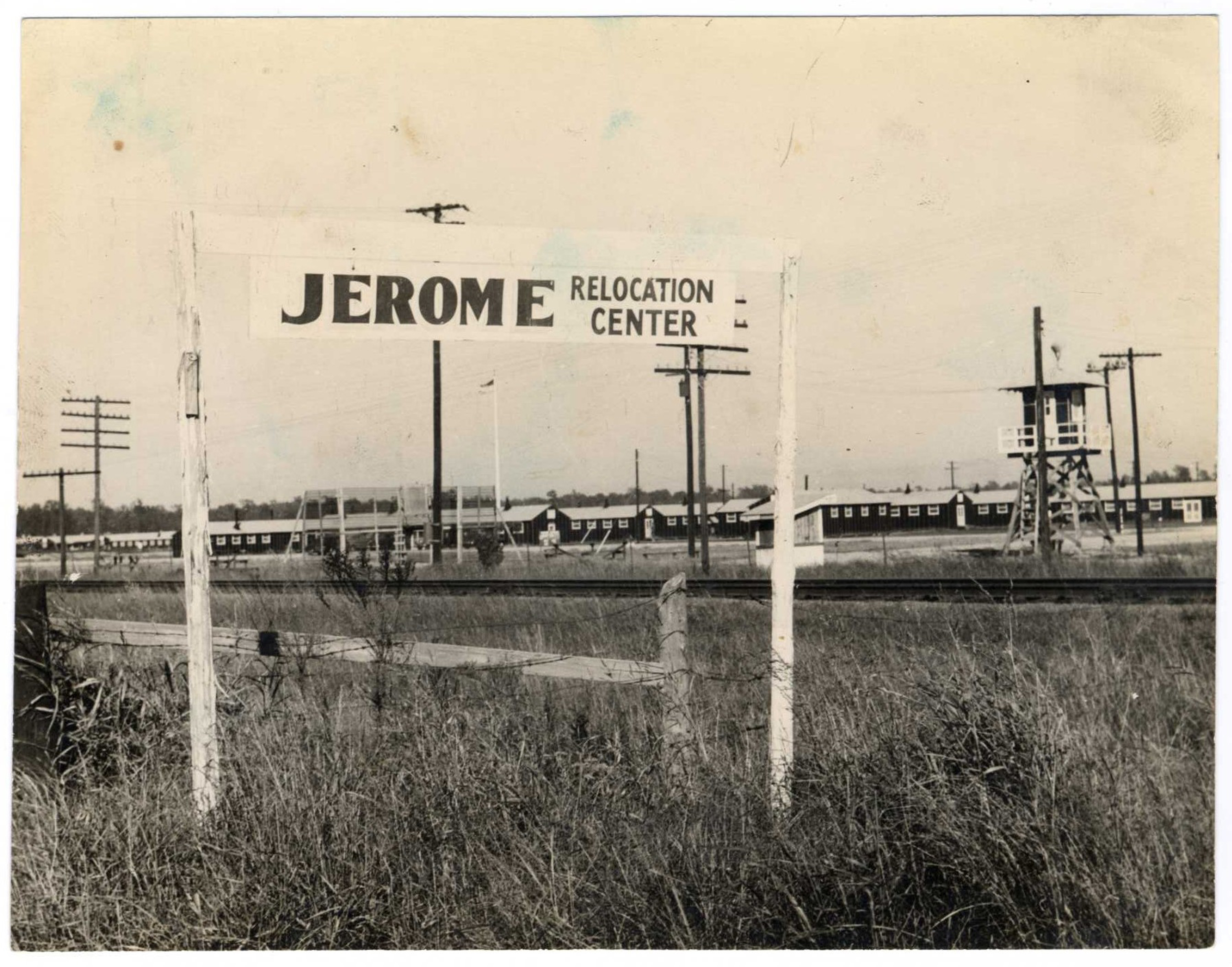
Jerome concentration camp
On the day that Pearl Harbor was bombed, his father was arrested and imprisoned.
The rest of his family were separated and sent to Jerome and Gila River American concentration camps.
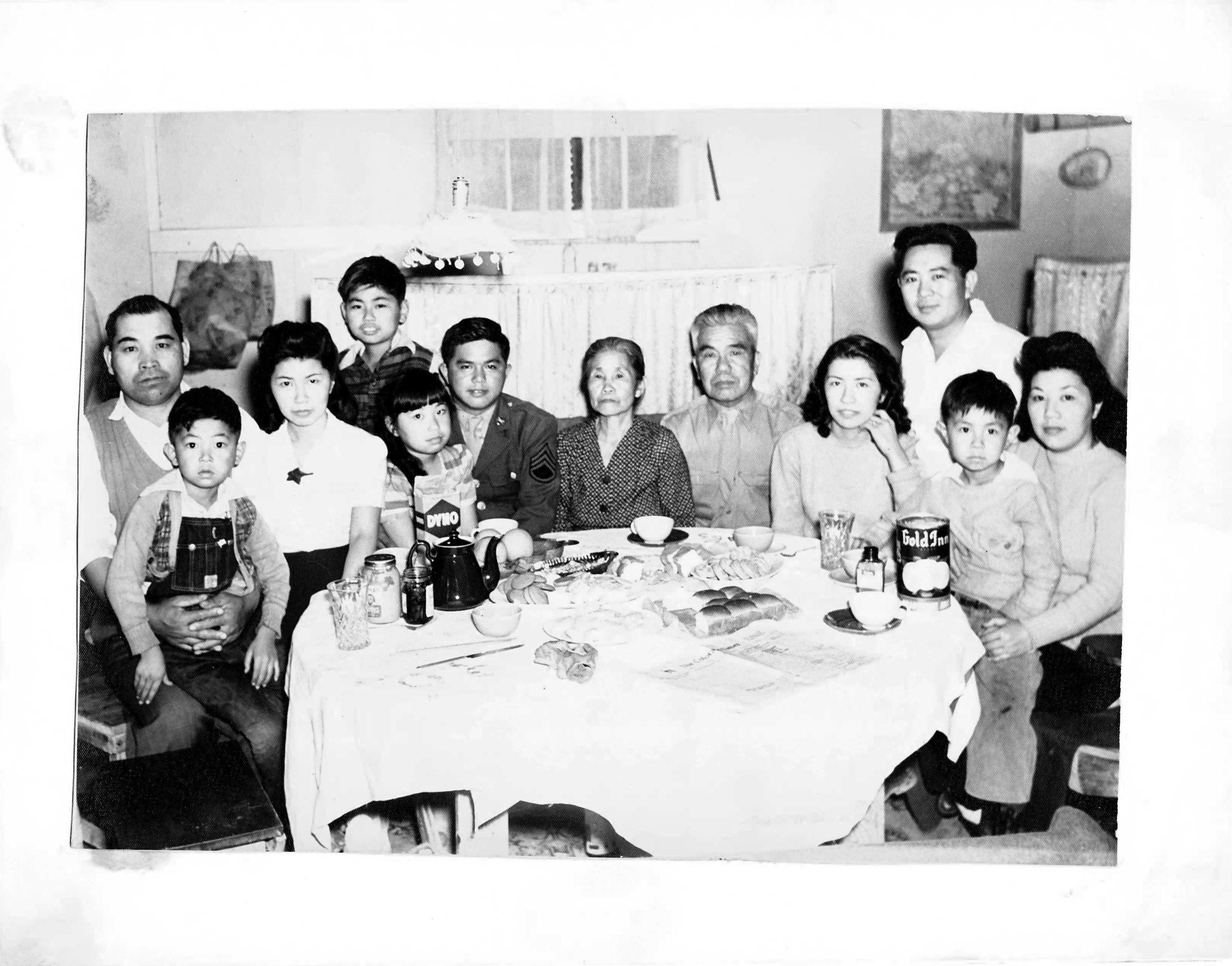
Visiting Family in Jerome
Despite all this, Kazuo and three of his brothers served in the United States Armed Forces.
Dear Mitsuko,
Sure was glad to receive your interesting letter. So far everything has been going okay. This army life is really interesting; only trouble so far is, I'm having a h--l of a time marching with my short legs.
Until last week we went through what they call basic training. It is something every soldier should know, such as, marching, shooting of rifles, gas-mask drill, etc.
We are now in the specialist's training which is radio. In this radio battery, we learn to send and receive code, learn to read and make maps, send and decode messages and many other things pertaining to ...
Serving His Country in Italy, 1944
Kazuo was assigned to the 442nd Infantry Battalion and left for Italy in April 1944.
On the night of July 6, 1944, he turned back two major counteroffensives and inflicted heavy casualties after firing at the enemy for twelve hours.
Almost two months later on August 27, Kazuo went on night patrol with two other men. Before heading out, he borrowed a watch from Sgt. Jack Wakamatsu with a promise to keep it safe. True to his word, while crossing the Arno River, he radioed Jack to assure him that his watch was fine. Minutes later, he came across enemy fire. Kazuo ordered the two men to retreat while he advanced to take out the enemy. He said:
Not a step back. Never!
You can't win by going
backwards!
He was killed by enemy fire that night.
The watch was found and returned to Sgt. Jack Wakamatsu. In 1983, he gifted the watch, still ticking, to the Masuda family.
His act of heroism and self-sacrifice on the battlefield in Italy earned him a Distinguished Service Cross.
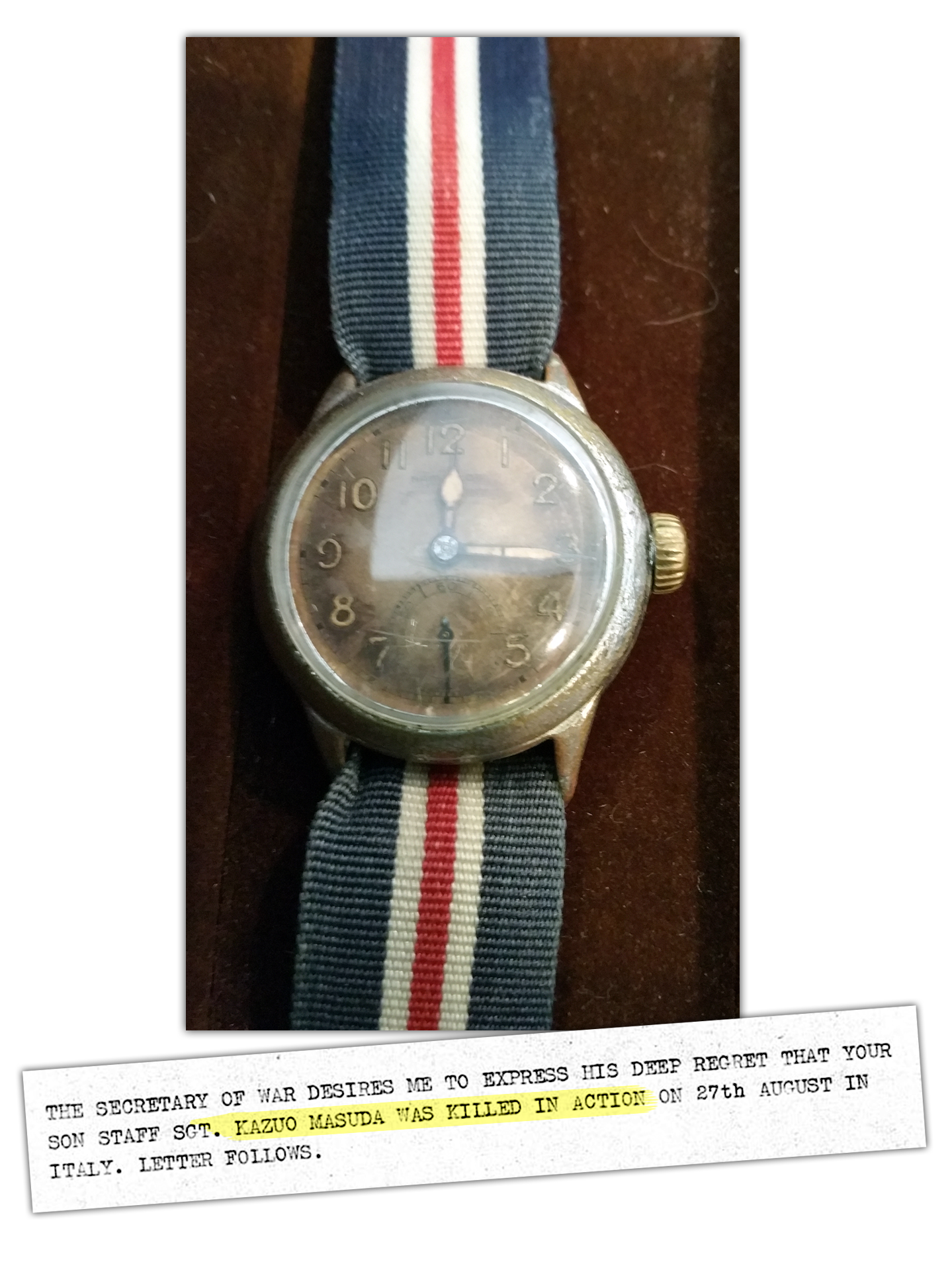
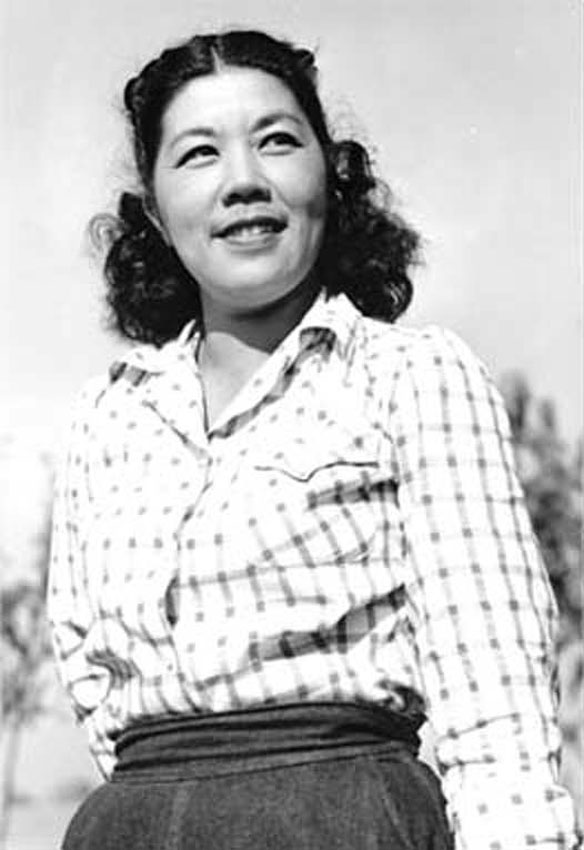
Mary Masuda
Masuda Family Post-War
Despite Kazuo's sacrifice, the Masuda family continued to face racism and discrimination.
Kazuo's oldest sister, Mary, was granted a leave to visit California to look over the conditions of the farm and home. While there, she was threatened and told to “get back to camp.” Despite the threats, she moved her family back to California, determined that her brother Kazuo's death would not be in vain.
In an attempt to mitigate acts of terror and discrimination faced by the Japanese community, the War Relocation Authority and other state and federal agencies began a campaign to change public opinion by telling the story of Nisei soldiers who served their country.
The Masuda family served as the face of one of these campaigns. General Joseph Stilwell flew to California to present the Distinguished Service Cross to the family in a public ceremony at the Masuda farmhouse, where media and celebrities had gathered.
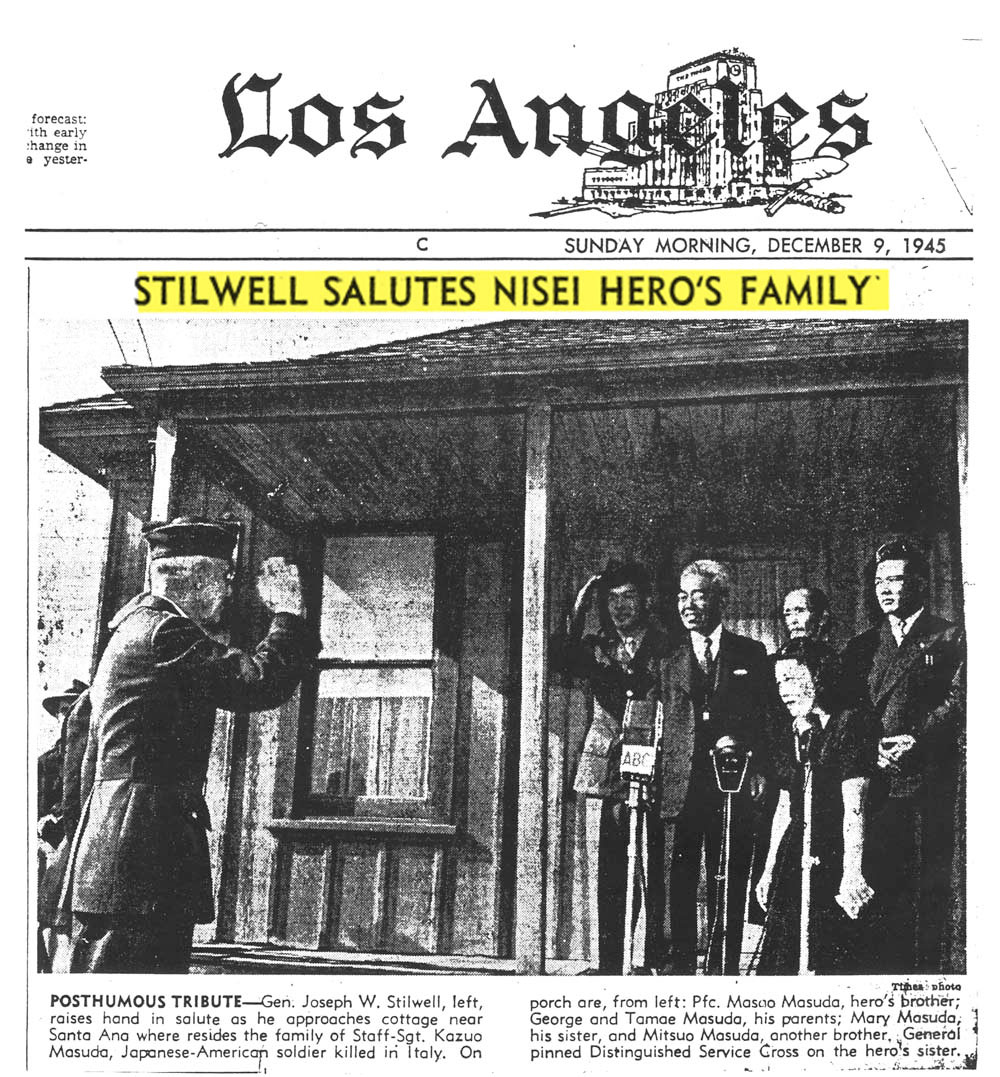
Following this ceremony, Captain Ronald Reagan acknowledged at a rally the sacrifice of Kazuo Masuda by stating:
The blood that has soaked the sands of a beach is all of one color. America stands unique in the world; the only country not founded on race, but on a way and an ideal. | Captain Ronald Reagan, | December 8, 1945
The sacrifice of Kazuo Masuda served as a constant reminder of the struggles and sacrifices of the Japanese American community.
His legacy inspired President Ronald Reagan to grant redress and reparations to Japanese Americans through the Civil Liberties Act of 1988.
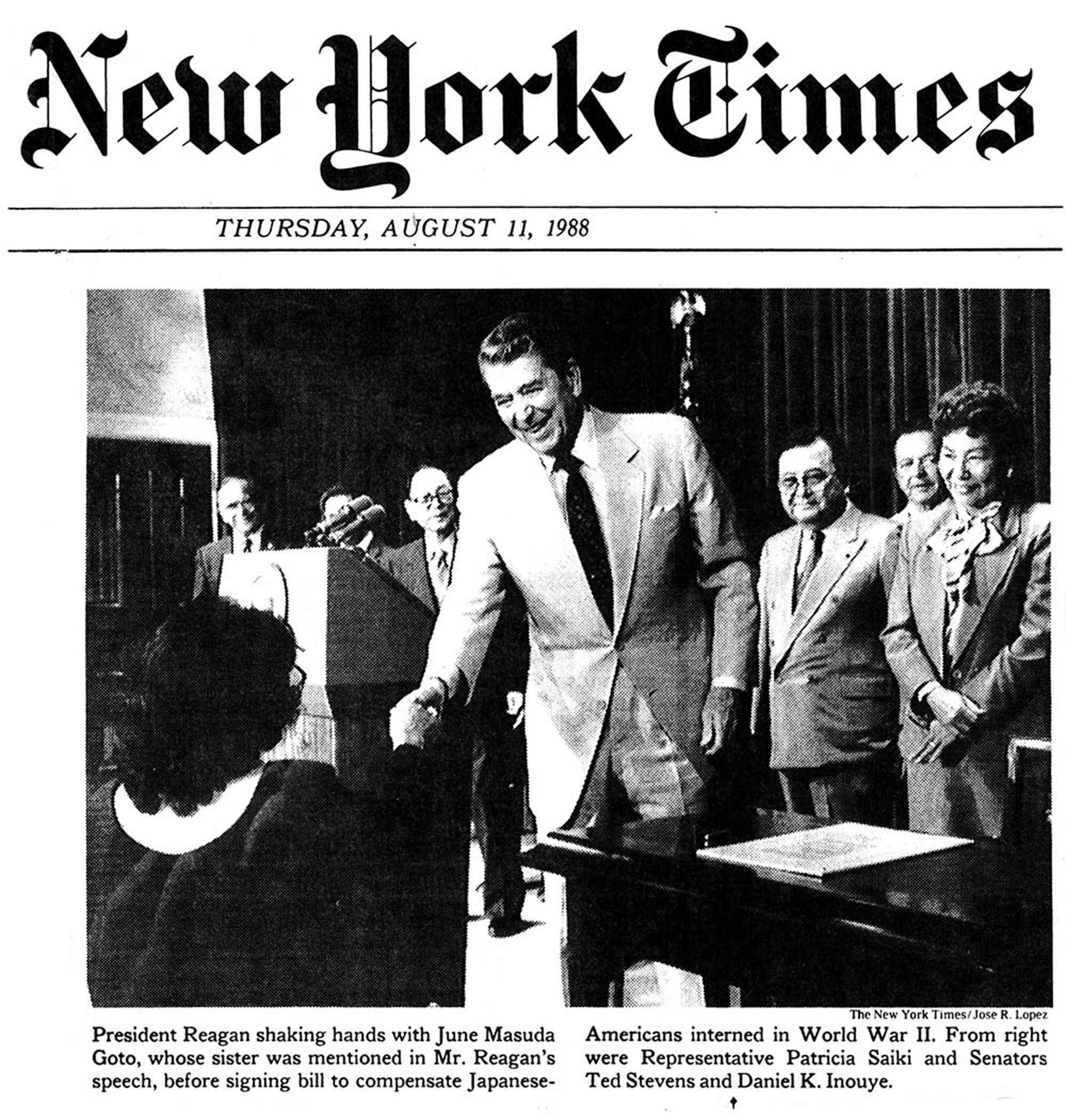
The New York Times covers the Act Signing.
A middle school in Fountain Valley, California, where Kazuo grew up, is named after him. Students learn about his wartime exploits and sacrifice through special programs and a dedicated display case.
The renamed Kazuo Masuda VFW Post 3670 created a memorial garden in the fallen soldier’s honor on the school campus. Kazuo's commitment to democracy is being kept alive today.
Resources
To learn more about Kazuo Masuda, visit Resources.
Credits
Unless otherwise noted, images shown on this page are a gift from Masao Masuda and family to the Smithsonian's National Museum of American History.
